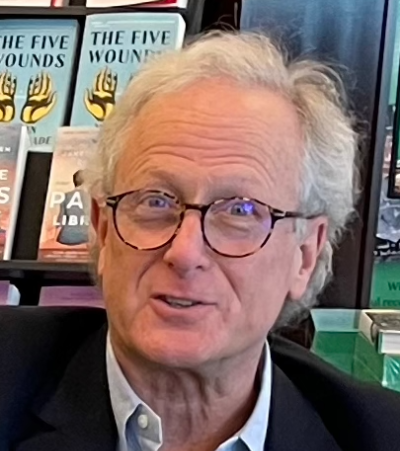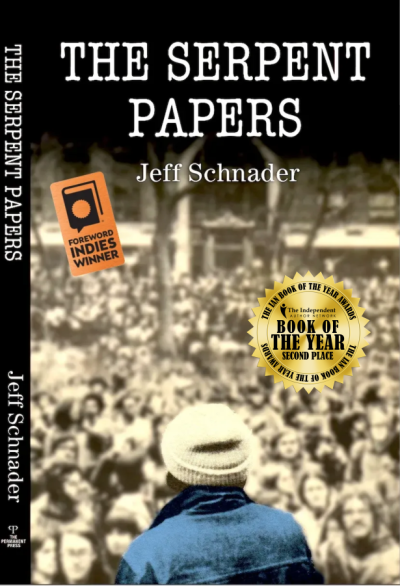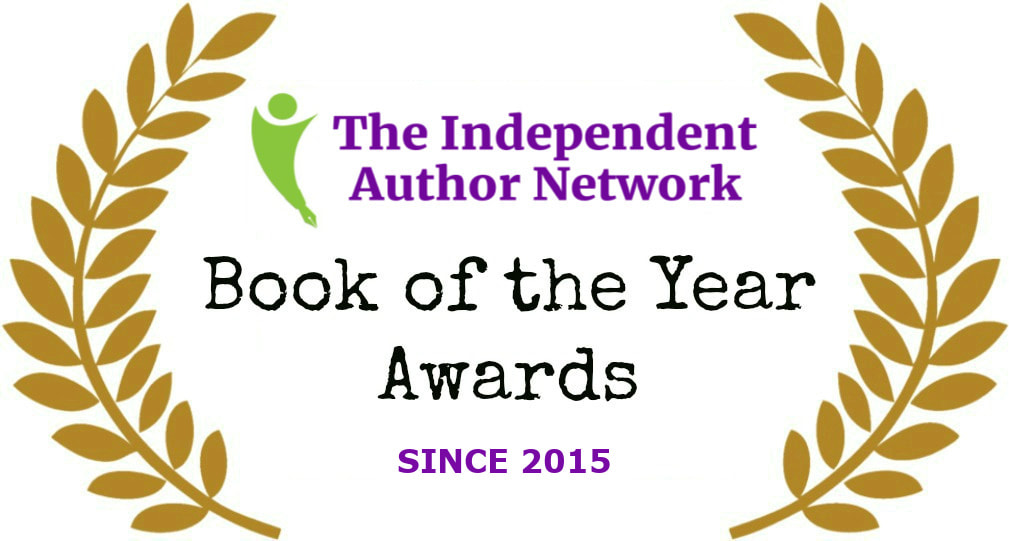Jeff Schnader
|
Jeff Schnader’s Vietnam War era novel, The Serpent Papers, about the Vietnam War era and the anti-war demonstrations at Columbia University, was published by The Permanent Press, in 2022. In 1972, Schnader was at Columbia University where he participated in sit-ins, marches and demonstrations, including the campus protest-turned-riot where 1000 students were charged down & beaten by hundreds of New York Tactical Police in full battle regalia.
The Serpent Papers was "GRAND PRIZE WINNER" (monetary prize) in the FICTION BOOK OF THE YEAR AWARDS and 1st Place Winner for "Outstanding Historical Fiction" by the Independent Author Network, 2023. It was "Bronze Winner" in the Foreword Reviews Book of the Year Awards (historical fiction), 2022. The Serpent Papers was a Finalist in the Indie Excellence Awards, 2023; Finalist in the 20th Annual Best Book Awards, 2023; and Short-Listed Finalist in the 2021 Blue Moon Novel Competition. The book was a “Staff Pick” of VFW Magazine’s Book Corner (2023). Schnader's short story, The Champion, won 1st prize in the 2020 Annual Quills Contest of LUW (monetary prize) & was published in the October, 2022, issue of the Arlington Literary Journal (ArLiJo). His essays and short stories have been published in Audere Literary Magazine, Bookscover2cover, and The Write Launch Literary Journal. He has been interviewed on radio across America and Europe and in print in Foreword Reviews, Bookscover2cover, and the Columbia Fiction Foundry. After graduating from Columbia with a BA in physics, he received his MD degree from McGill University with further work at Johns Hopkins. He became Professor of Medicine, authoring over 50 scientific publications and speaking nationally hundreds of times. He was awarded for teaching and for editing a renowned medical journal. He ran an ICU and worked full-time in Veterans Hospitals for 22 years. |
The Serpent Papers
|
Historical Fiction
J-Bee, scion of a military family, is raised in a violent milieu during the 1960s where he commits a retaliatory act of brutality. While his best friend volunteers to fight in Vietnam, J-Bee is repulsed by his own violence and refuses to follow in his father’s military footsteps. Instead, he matriculates at Columbia in 1971, an era of counterculture, in order to seek redemption. Although he feels loyalty to his friend fighting overseas, he strongly sympathizes with his girlfriend’s rationale against the war. Torn between supporting the war or protesting against it, his paradoxical feelings are fueled when his best friend, on furlough from Vietnam, visits him at Columbia. With ratcheting tensions and bullhorns inciting students to protest, pro-war and anti-war factions collide in campus riots, and J-Bee redeems his prior acts of violence by making the choice that comes to define his life. |












